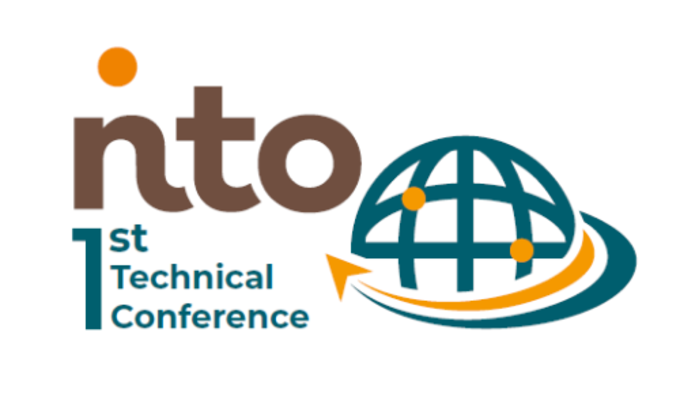Why is building stronger partnerships to fight tax-related illicit financial flows a topic for the 1st NTO Technical Conference?


Tax evasion and avoidance are illicit financial flows and represent as such serious impediments to achieving sustainable development, eradicating poverty and reducing inequality. Although it is methodically difficult to fully measure the forgone revenue, it is clear that the amounts lost to tax evasion and avoidance are significant. So significant, that they endanger the achievement of the sustainable development goals as governments lack necessary domestic resources. As most recently shown by the Pandora Papers leaks, multinational companies and wealthy individuals go all too often under- or even untaxed and keep accumulating their wealth. In the meantime, governments across the world struggle to finance and provide sufficient public goods and services, like health care, infrastructure or energy. Hence, the road to achieving sustainable development, eradicating absolute poverty and reducing inequality remains bumpy.
Against this backdrop, the fight against illicit financial flows is a crucial part of domestic resource mobilisation. The key ingredients are increased transparency about key financial data and cross-border flows, company structures and beneficial ownership information. Having access to such information will help tax administrations to identify as well as prevent tax evasion and avoidance. However, gaining access to this kind of information is not always easy as information is often well-hidden and several sources need to be consulted to collect all necessary data. This complexity is increased in cross-border contexts.
Consequently, fighting tax evasion and avoidance effectively comes down to cooperation and partnerships – both on domestic and international level. Due to the complexity and cross-border nature of such schemes, this endeavour cannot be undertaken in domestic isolation. Relevant pieces of information, which are necessary to detect tax crimes and tax avoidance and as a result also deter such behaviour, are widely spread and often only available in foreign jurisdictions, thus practically out of reach for the local tax administration and law enforcement. Consequently, without the cooperation from other jurisdictions the task of accessing relevant and often well-hidden facts remains daunting. Luckily, the ongoing digitalisation of administrations, e.g. widespread communication tools and data analysis software, can serve as a valuable and powerful tool for effective partnerships to counter illicit financial flows.
On a domestic level, it is essential that a whole-of-government approach is practiced. This requires a common understanding within government that only through a high degree of coordination and cooperation among all agencies, a country will have a chance to tackle illicit financial flows. This means, instead of leaving the task of identifying first signs of tax evasion and tax avoidance solely to the tax authorities, the investigation of tax evasion to the financial crime units and the persecution to the prosecution, all respective agencies need to be involved and cooperate closely. Other government departments or agencies often possess information that might be relevant for tax authorities, financial crime investigators and prosecutors to detect tax-related illicit financial flows. For example, customs know about imported goods, quality and declared import price, the ministry of mining is in possession of relevant information about the exact business activity and exploited mining sites, and the land registry office has important information on ownership of land and buildings.
On an international level, tax administrations need to build bridges across borders. The goal is to make sharing relevant information, joint audits, collection and enforcement activities as easy as possible. Mutual assistance in tax matters and exchange of information are essential tools in the fight against tax-related illicit financial flows. Also here, it is important that not only the respective laws, processes and IT infrastructure are in place, but that those formal relationships transcend to the relationships between people working on these processes in a way that they feel comfortable to work together and share information, their knowledge and experiences.
The international community achieved good progress in building partnerships and in agreeing on international standards to effectively fight tax evasion and tax avoidance, but challenges remain. The deal on the Two-Pillar Solution to Address the Tax Challenges Arising from the Digitalisation of the Economy struck on 8 October by 136 countries of the OECD/G20 Inclusive Framework on BEPS shows the high degree of willingness for international cooperation to resolve the existing issues. Despite an unprecedented number of existing exchange and mutual support relationships, there are still many countries making limited use of these opportunities. In many cases, the necessary relationships do not exist yet. With others, such partnerships stand at their beginning and the potential opportunities are yet to be explored. And here, international and regional tax organisations, such as the Network of Tax Organisations, have a crucial role to play.
International and regional tax administration organisations play a vital role to build and deepen existing cross-border partnerships among revenue authorities. They are not only providing technical expertise to their members in order to enable them to formally implement and enforce laws against tax evasion and avoidance. They also bring together tax administrators from different countries to share their experiences and exchange knowledge, to give them a common voice. As such they are crucial platforms to create and strengthen partnerships. By teaming up and creating the NTO, participating tax organisations managed to create such a global network. With this goal in mind, the NTO is proud to announce its first technical conference under the title “BUILDING STRONGER PARTNERSHIPS TO FIGHT TAX-RELATED ILLICIT FINANCIAL FLOWS”. The participation of more than 400 guests from tax authorities, academia, development partners, CSOs and international organisations will provide plenty of opportunities to build such partnerships.